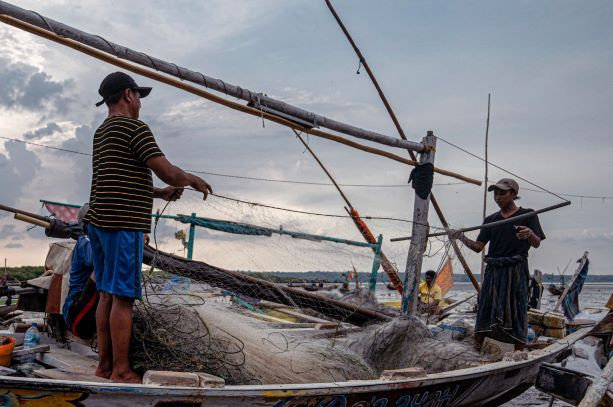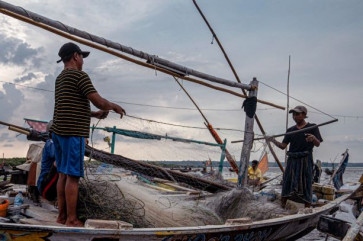Popular Reads
Top Results
Can't find what you're looking for?
View all search resultsPopular Reads
Top Results
Can't find what you're looking for?
View all search resultsParticipatory marine governance a must to tackle ocean issues
The country’s marine governance follows a hierarchical or centralized model, in which the state is the main actor in regulating and implementing marine regulations both at the central and local levels.
Change text size
Gift Premium Articles
to Anyone
W
orld leaders, private sector, NGO representatives and other stakeholders are gathering for the United Nations Ocean Conference (UNOC) now underway in Lisbon from June 27 to July 1, discussing priority agendas to encourage emergency and strategic steps to minimize ocean problems.
Some of the issues include climate change, Illegal Unreported Unregulated (IUU) fishing and marine debris. At the previous UNOC, 14 action plans related to the conservation and sustainable use of marine resources were agreed by various parties. The question is how the action plans can be implemented effectively.
In his essay, Tragedy of the Common, Garret Hardin says that in an open natural-resources space, including the sea, people tend to compete to take as many natural resources as possible because if one person does not take it for himself, then someone else will. Hardin's hypothesis is proven.
Overexploitation of marine resources is widespread, including in Indonesian waters, with many fish stocks being exploited far beyond biological limits. For example, grouper snapper in Fisheries Management Areas (WPP) 573,711, 712, 713, 716 and 718 have exceeded the threshold, according to the Maritime and Fisheries Ministry data in 2021. There are various ways of exploitation, such as massive fishing, using destructive fishing gear that destroys marine ecosystems and coral reefs and use of poison.
One of the main causes of exploitation and destruction of marine resources is poor governance. Currently, the country’s marine governance follows a hierarchical or centralized model, in which the state is the main actor in regulating and implementing marine regulations both at the central and local levels.
This is despite the fact that the participatory marine governance approach was introduced 30 years ago. Under this model, other parties such as coastal communities, customary-law communities, fishers, village governments and the private sector take part as decision-makers in marine management.
There are several reasons why the participatory marine governance should be encouraged. First, the state has limitations to prevent individuals and groups from violating regulations.



















